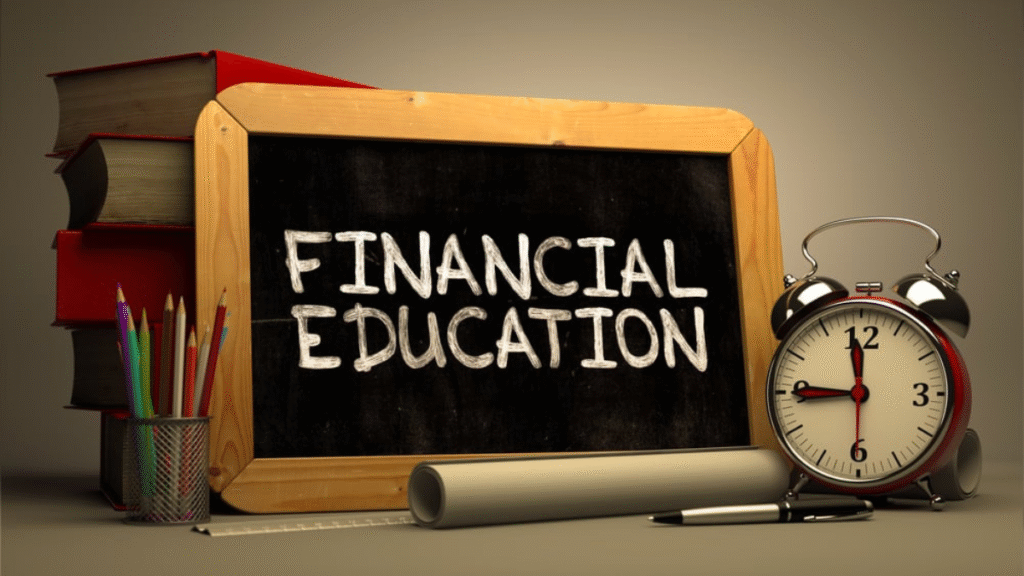Personal finance is not just about numbers, it’s about building the foundation for a stress-free and secure future. Whether you’re a student starting your first job, a young professional, or someone who’s just now beginning to think about budgeting, learning how to manage your money is crucial.
This comprehensive guide will walk you through the essentials of personal finance and help you build lifelong financial habits.
What Is Personal Finance?
Personal finance refers to how you manage your money — including income, expenses, savings, investments, insurance, and retirement planning. It’s the foundation of your financial well-being, impacting everything from daily purchases to long-term goals like buying a house or retiring comfortably.
Why Is Personal Finance Important?
Many people struggle financially not because they don’t earn enough, but because they don’t manage what they earn wisely. Good personal finance management:
- Reduces stress related to money
- Helps in achieving life goals
- Prepares you for emergencies
- Builds wealth over time
Core Components of Personal Finance
1. Budgeting

Budgeting is the process of creating a plan to spend your money. This spending plan is called a budget. Creating a budget helps you:
- Track income and expenses
- Avoid overspending
- Save more effectively
The 50/30/20 Rule
This is a popular rule to allocate your income:
- 50% for Needs
- 30% for Wants
- 20% for Savings and Debt Repayment
2. Saving
Saving money helps you prepare for unexpected expenses and long-term goals. Key types of savings include:
- Emergency fund: 3–6 months of expenses
- Short-term savings: Travel, gadgets, weddings
- Long-term savings: Home purchase, retirement
3. Debt Management
Debt is not always bad, but uncontrolled debt can lead to financial trouble. You should:
- Avoid high-interest debts (like credit cards)
- Pay loans on time
- Use debt consolidation if needed
4. Investing
Investing allows your money to grow over time. Unlike saving, investing involves risk but can offer higher returns.
Types of Investments:
- Stocks
- Mutual Funds
- Real Estate
- Retirement Accounts (e.g., PPF, EPF, NPS)
5. Insurance and Risk Management
Insurance protects your financial health from unexpected events. Basic types to consider:
- Health Insurance
- Life Insurance
- Vehicle Insurance
- Home Insurance
Steps to Start Managing Your Money
1. Set Financial Goals
Start by identifying short-term, mid-term, and long-term goals.
| Type | Examples |
|---|---|
| Short-Term | Emergency fund, debt repayment |
| Mid-Term | Vacation, buying a vehicle |
| Long-Term | Home, child’s education, retirement |
2. Track Your Income and Expenses
Use apps or a spreadsheet to monitor every rupee coming in and going out. This builds financial awareness and helps plug unnecessary spending.
3. Create and Stick to a Budget
Once you know your spending habits, develop a realistic monthly budget. Tools like Mint, YNAB (You Need A Budget), or even simple Excel sheets can help.
4. Build an Emergency Fund
This is your financial cushion. Start small (₹5,000–₹10,000), and aim for 3–6 months of essential expenses.
5. Pay Off Debt Strategically
Snowball Method:
Pay smallest debts first to gain momentum.
Avalanche Method:
Pay highest interest debts first to save money.
Choose a strategy that keeps you motivated and consistent.
6. Automate Savings and Investments
Set up automatic transfers from your salary account to:
- Savings account
- SIPs (Systematic Investment Plans)
- Retirement accounts
This “pay yourself first” strategy ensures consistent progress.
Tools for Personal Finance Management
Budgeting Tools
- GoodBudget
- YNAB
- Excel/Google Sheets
Expense Tracking Apps
- Walnut
- Money View
- Pocket Expense
Investment Platforms
- Groww
- Zerodha
- Kuvera
Insurance Portals
- Policybazaar
- InsuranceDekho
Common Mistakes To Avoid in Personal Finance
1. Living Paycheck to Paycheck
Not saving anything can leave you vulnerable in emergencies.
2. Using Credit Cards Carelessly
Revolving credit balances build up interest quickly. Always try to pay your credit card bills in full.
3. Not Investing Early
The earlier you start investing, the more you benefit from compounding.
4. Ignoring Insurance
One accident or illness without insurance can drain years of savings.
5. Not Planning for Retirement
Start saving for retirement in your 20s or 30s, not your 50s.
Building Good Financial Habits
1. Regular Financial Check-Ins
Spend 30 minutes every week reviewing your finances. Adjust budgets, check investments, and update goals.
2. Financial Education

Read books, blogs, listen to podcasts, or take online courses. Some recommended books:
- Rich Dad Poor Dad by Robert Kiyosaki
- The Psychology of Money by Morgan Housel
- Your Money or Your Life by Vicki Robin
3. Avoid Lifestyle Inflation
As income increases, don’t increase expenses proportionally. Invest the surplus instead.
4. Surround Yourself with Financially Savvy People
Good influences can inspire better financial decisions.
Retirement Planning Basics
Even if retirement seems far off, planning early can make a huge difference.
Options in India:
- NPS (National Pension Scheme)
- EPF (Employees’ Provident Fund)
- PPF (Public Provident Fund)
- Mutual Funds for Retirement
Tax Planning for Beginners
Taxes can eat into your income if not managed. Learn to legally reduce your tax burden.
Key Sections to Know:
- 80C: Up to ₹1.5 lakh deduction on investments like ELSS, PPF, EPF, Life Insurance
- 80D: Deductions for health insurance
- 24B: Home loan interest deductions
Use online calculators or consult a tax advisor annually.
When to Seek Professional Financial Help
While many aspects of personal finance can be DIY, consider hiring a certified financial planner (CFP) if:
- Your finances are complex
- You’re making large investments
- You need help with estate planning
Also Read: The Ultimate Guide To Financial Planning For Beginners
Conclusion
Mastering personal finance is a journey, not a one-time effort. Start small, stay consistent, and continue learning. By budgeting, saving, investing, and managing risk wisely, you can secure your present and build a stable future. Whether you earn a little or a lot, smart money management can transform your financial life.
FAQs
1. What is the first step in personal finance?
Start by tracking your income and expenses. Knowing where your money goes is the foundation of financial planning.
2. How much should I save each month?
Aim for at least 20% of your income. If not possible initially, start with a small amount and gradually increase it.
3. Is it better to pay off debt or save first?
Build a small emergency fund first (₹10,000–₹25,000), then aggressively pay off high-interest debt while continuing minimal savings.
4. Can I invest with little money?
Yes. SIPs allow you to start investing in mutual funds with as little as ₹100–₹500 per month.
5. Do I need a financial advisor?
Not always. For simple financial situations, you can manage on your own. But for long-term goals or complex finances, a certified financial advisor is helpful.




